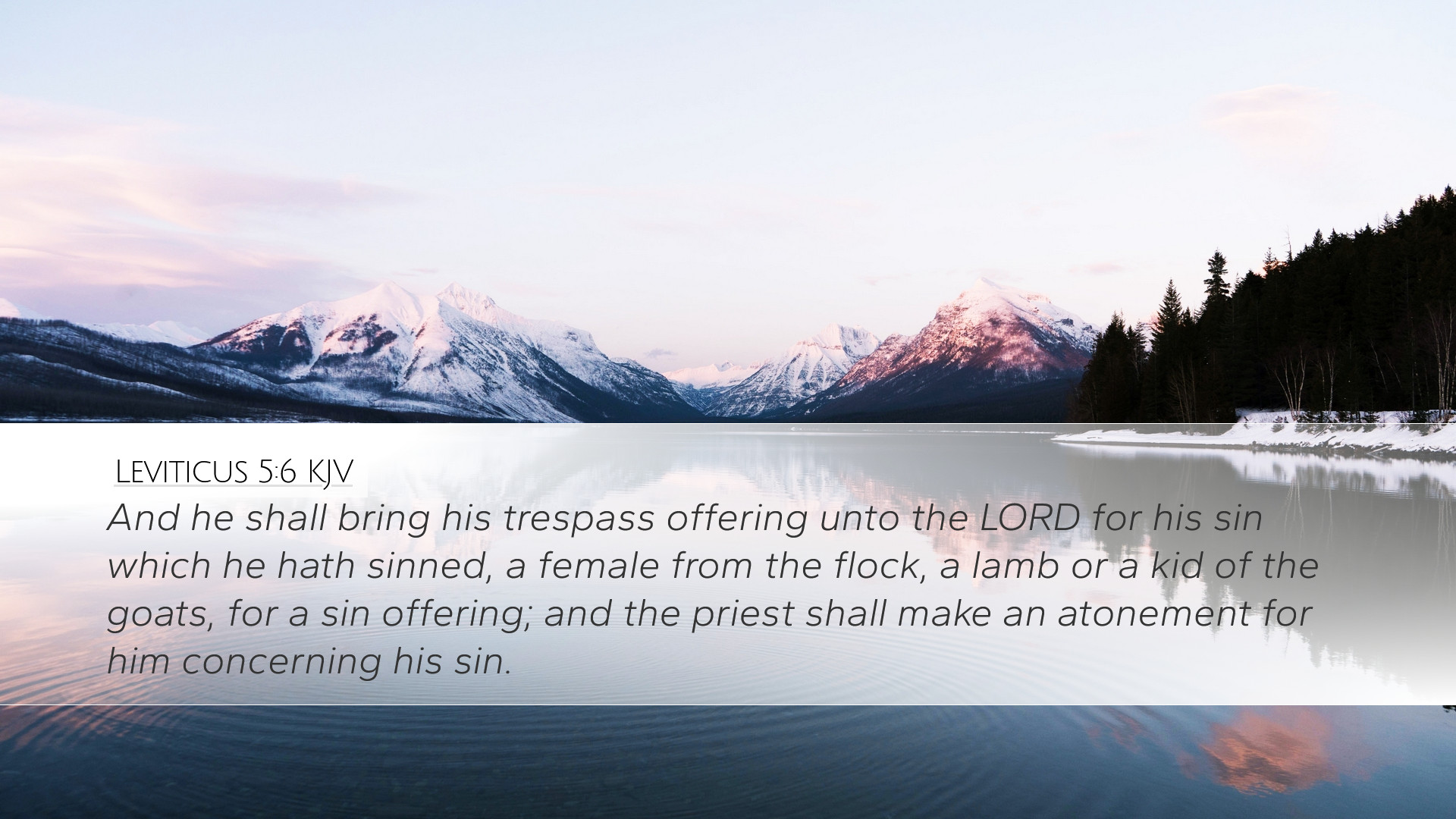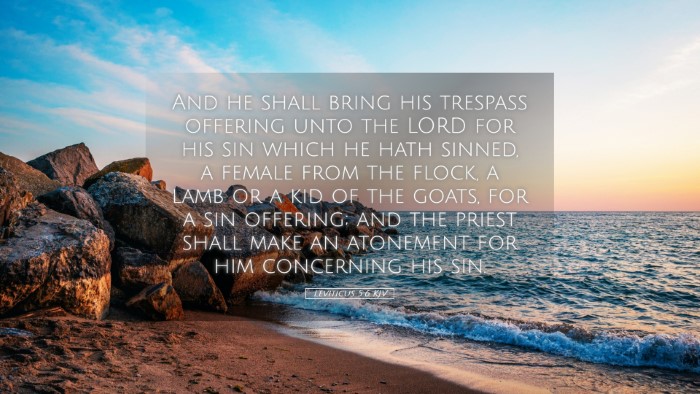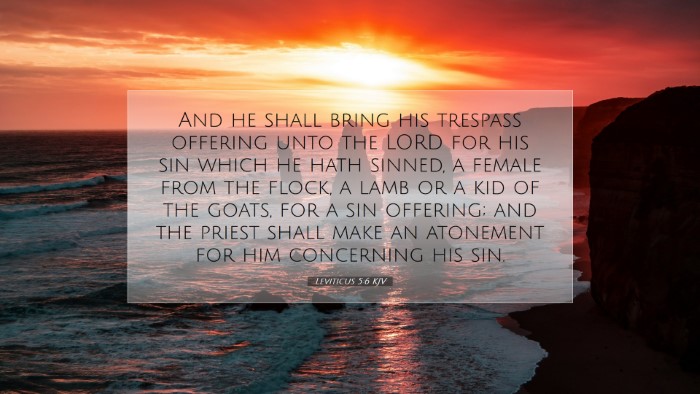Commentary on Leviticus 5:6
Bible Verse: "And he shall bring his trespass offering unto the LORD for his sin which he hath sinned: a female from the flock, a lamb or a kid of the goats, for a sin offering; and the priest shall make an atonement for him for his sin."
Introduction
The book of Leviticus provides critical insights into the holiness of God and the means of atonement for sin among His people. In this specific verse, Leviticus 5:6, we observe the procedures for presenting a trespass offering, which underscores the seriousness of sin and the necessity of restitution before God. This commentary will draw from classical public domain sources, providing a rich tapestry of understanding suitable for pastors, students, theologians, and Bible scholars.
Contextual Background
Leviticus, primarily concerned with the laws and regulations pertaining to the worship of God, sets forth detailed instructions for the Israelites about how to maintain a right relationship with Him. The sacrificial system serves as a vital means of reconciliation and represents the seriousness of sin against a holy God.
Textual Analysis
This verse highlights the essential elements of the trespass offering:
- The Offerer: The individual who has committed a trespass must recognize their wrongdoing and seek to make amends.
- The Offering: The prescribed offering is a female lamb or a kid from the goats—symbols of purity and sacrifice.
- The Priest's Role: The priest acts as the intermediary who facilitates atonement, emphasizing the communal aspect of worship in Israel.
Theological Significance
As noted by Matthew Henry, the requirement to bring a trespass offering reflects the gravity of sin. Sin is not merely a personal failure; it impacts both the individual and the broader community. The act of bringing an offering signifies the recognition of sin and the intent to restore one’s standing before God.
Adam Clarke emphasizes that the term "trespass" denotes a violation of God's commands, often involving neglect or failure to act properly. Clarke posits that this highlights God’s concern not merely for overt actions of disobedience but also for the neglected duties that people may overlook in their daily lives.
Sacrificial System and Atonement
The sacrificial offerings outlined in Leviticus are deeply rooted in the concept of atonement. As Albert Barnes elucidates, the necessity of a specific offering reinforces the idea that precise obedience to God’s commands is essential for atonement. Each type of offering corresponds to various conditions of sin, revealing God’s comprehensive provision for forgiveness.
Moreover, the selection of a female lamb or goat encapsulates the theme of innocence and purity in sacrifice, integral to understanding the foreshadowing of Christ’s ultimate sacrifice. As we consider the New Testament perspective, the Lamb of God becomes central to the theme of atonement and reconciliation.
Moral and Practical Implications
This text challenges contemporary believers to reflect on their own lives when it comes to sin and accountability. In the community of faith, acknowledgment of sin and the determination to seek restoration is vital. The necessity of a priest in the Old Testament serves as a precursor to understanding the role of Christ as our high priest today.
Moreover, Henry alerts us to the importance of genuine repentance that involves not only feeling sorry for one’s actions but also a decisive turn towards God and restitution when necessary. This holistic approach to sin encompasses both vertical (between the individual and God) and horizontal (between individuals) dimensions of relationship.
Conclusion
Leviticus 5:6 serves as a profound reminder of the significance of sin, the need for atonement, and the grace of God in providing a means for reconciliation. The insights shared from public domain commentaries such as those by Henry, Barnes, and Clarke illuminate the timeless truth that the God we serve desires holiness and relationship with His people. The sacrificial system is more than an ancient practice; it is a profound theological framework pointing us toward the ultimate sacrifice in Jesus Christ, who fulfills the Law and offers true atonement for all humanity.


